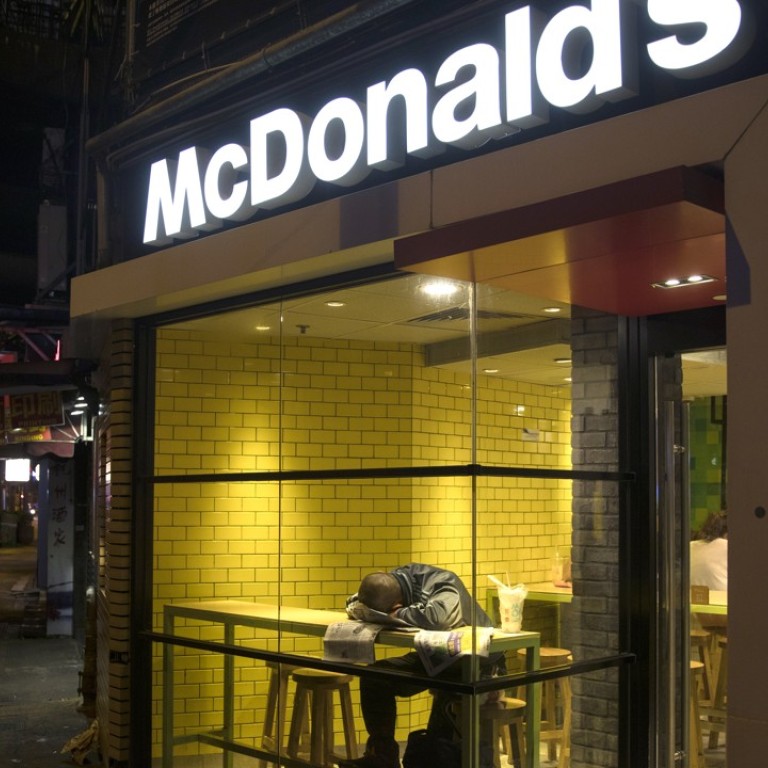Advertisement
Advertisement

How long can Hong Kong afford to keep ignoring its homeless and working poor?
I am writing in response to Antonia Kwan’s letter (“Will Hong Kong just push its street sleepers out of sight?”, August 23). I agree with Ms Kwan that caring for the vulnerable in society, which is related to many social problems, should take priority in Hong Kong.
I remember how, in 2015, a homeless old woman lay dead at a McDonald’s restaurant without diners noticing until the following day. This was sad indeed. But it highlighted a very serious social problem: a lack of care for the needy.
From the cases of McRefugees, to the recent incidents about street sleepers being evicted, we can infer that we still have a long way to go in becoming a truly empathetic society.
I also agree with Ms Kwan that Hong Kong’s distorted property market is the source of many of society’s troubles. Those unable to afford basic rent are forced to sleep under flyovers or on footbridges, or become McRefugees. Even more astonishing, many of the homeless actually have jobs, but still can’t make ends meet.
Watch: Living on a footbridge
Hong Kong’s shame: homeless numbers soar
Though financial support is helpful, it is not a permanent solution. It may seem like the poverty problem is easing, but their actual living conditions are still the same, if not worse, due to inflation and stagnant incomes. A study by the Society for Community Organisation earlier this year found two of the main reasons for staying in McDonald’s were saving on utility bills and poor living conditions, such as in subdivided flats.
The lonely life of the McSleepers, the poor who call McDonald’s home
Isn’t it ironic that in such a prosperous international metropolis as ours, the living conditions in a fast-food restaurant are better than those in a flat? I see no reason for the government not to make solving social problems its top priority. Blindly developing infrastructure and the economy is not the right way forward.
Chan Kwan Ming, Ma On Shan

Post
